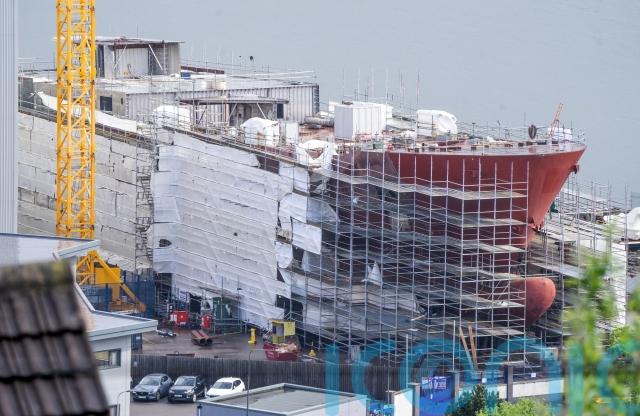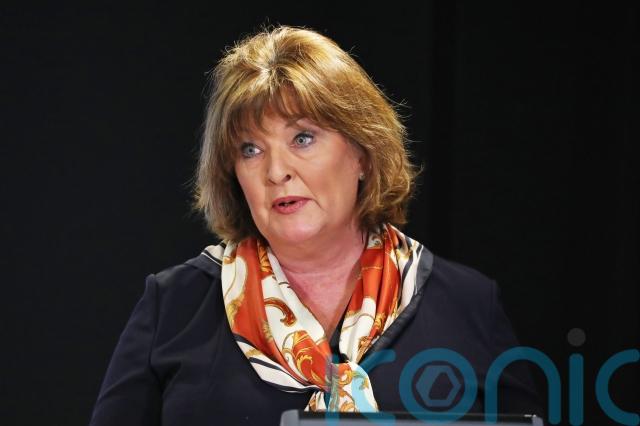
Islanders have written to new transport minister Fiona Hyslop demanding cash help from the Scottish Government as a survey claimed CalMac’s “failing ferry service” had cost businesses on just two islands almost £1.5 million.
In the midst of what was described as an “intense crisis for the Hebridean ferry system”, Joe Reade wrote to the newly appointed transport minister on behalf of the Iona Community Council, Mull Community Council, the Mull and Iona Ferry Committee and other organisations on the two islands.
It comes as state-owned CalMac’s ageing fleet comes under pressure, with the ferry operator having recently been forced to cancel sailings to the island of South Uist for most of June.
Meanwhile, it waits delivery of two new ferries being constructed at the Ferguson Marine yard in Port Glasgow, which are years late and massively overbudget.
Mr Reade however claimed theses vessels were “over-complex and super-sized”, branding them “lavish behemoths”.
Hitting out at the Scottish Government he told Ms Hyslop: “Over decades, increasing demand has been met by making our ferries bigger, rather than adding to their numbers.
“So we have a small fleet of overly-large, elderly cruise-ferries. Each one more expensive than the last, each one requiring tens of millions to be spent on pier lengthening and dredging.
“The result is an inflexible, unreliable fleet where the ‘strategy’ is to remove ferries from one route in order to fix problems on another.”

As a result he said islanders were looking to the Scottish Government for financial aid, not CalMac, saying the ferry firm was “merely the operator of vessels given to it”.
In his letter to the transport minister, Mr Reade insisted: “The vast majority of our difficulties are the result of government action and inaction, not operational mistakes by CalMac.
“It is government policy that has let us down, by failing to renew the CalMac fleet quickly enough.”
He told Ms Hyslop a survey of businesses on Mull and Iona found firms had “cumulatively been hit with increased costs totalling more than £400,000” as a “direct consequence of our failing ferry service”.
Mr Reade added that on top of that businesses on the two islands had lost sales worth £1.05 million.

He told Ms Hyslop: “Note that not every business was able to respond to the survey so these figures understate the full magnitude of the losses.
“For an island group with a little over 3,000 residents, economic damage totalling nearly £1.5 million in a matter of months cannot be absorbed.”
In the survey done on the islands one business said: “As a direct consequence of CalMac I have lost 30% of my trade, which mainland-based competitors have now acquired.”
Another stated: “Some suppliers now will not deliver to Mull as they can’t guarantee delivery. Guests in holiday cottages have had sailings cancelled, which means in turn, they are cancelling their trips.”
Meanwhile, one business complained that there had now been “irreparable damage to trust in Mull as a destination” as a result of the ferry problems.
Another said: “The ferry disruption and ensuing uncertainty has increased the existing financial pressure on my business caused by the pandemic, and caused me to question the viability of my business and consider the possibility of insolvency.”
Calling for help from the government, Mr Reade said: “Many businesses will need urgent financial assistance to compensate for the immediate damage. Those businesses need immediate help now.”
But he also said the “longer-term reputational damage” to tourism in the islands would “need to be repaired, calling for a package of support to encourage visitors to return to the Hebrides.
A Transport Scotland spokesperson said it recognised the “impact that delays and disruption have regrettably had on our island communities and are fully committed to investing in our ferry services”.
They stated: “There have been ongoing technical issues with vessels resulting in delays to the annual overhaul programme and cancellation of sailings.”
Work is being done to “improve reliability and resilience across our networks,” the spokesperson said, adding that “regrettably there are communities who have been more greatly impacted than others and we fully recognise the need to improve reliability and confidence in services”.
The spokesperson said: “Statistics show that in 2022 of the 171,403 scheduled sailings across the CHFS (Clyde and Hebrides ferry services) network 11,301 (6.6%) were cancelled. Of these, 1,830 (1.1%) were cancelled due to technical issues.”
And they stated: “Delivering six new major vessels to serve Scotland’s ferry network by 2026 is a priority for this government.”
Meanwhile, a Scottish Government spokesperson said: “The issues around compensation have understandably been raised and we continue to consider what more we can do to support the communities and businesses affected.
“We recognise the impact of the disruption that island communities are facing. That is why we are committed to investing in our ferry services and ensuring we have six new vessels in the network by the end of the parliamentary session.
“Money that is deducted from CalMac in terms of penalties and fines is reinvested back into the network. This investment supports resilience and helps reduce future disruption – for example through the MV Alfred, which is currently providing resilience on the Arran route at a cost of £9 million, and is funded in part by those deductions. That ferry is providing resilience in the fleet, and we understand this is exactly what islanders want most of all.”
Subscribe or register today to discover more from DonegalLive.ie
Buy the e-paper of the Donegal Democrat, Donegal People's Press, Donegal Post and Inish Times here for instant access to Donegal's premier news titles.
Keep up with the latest news from Donegal with our daily newsletter featuring the most important stories of the day delivered to your inbox every evening at 5pm.